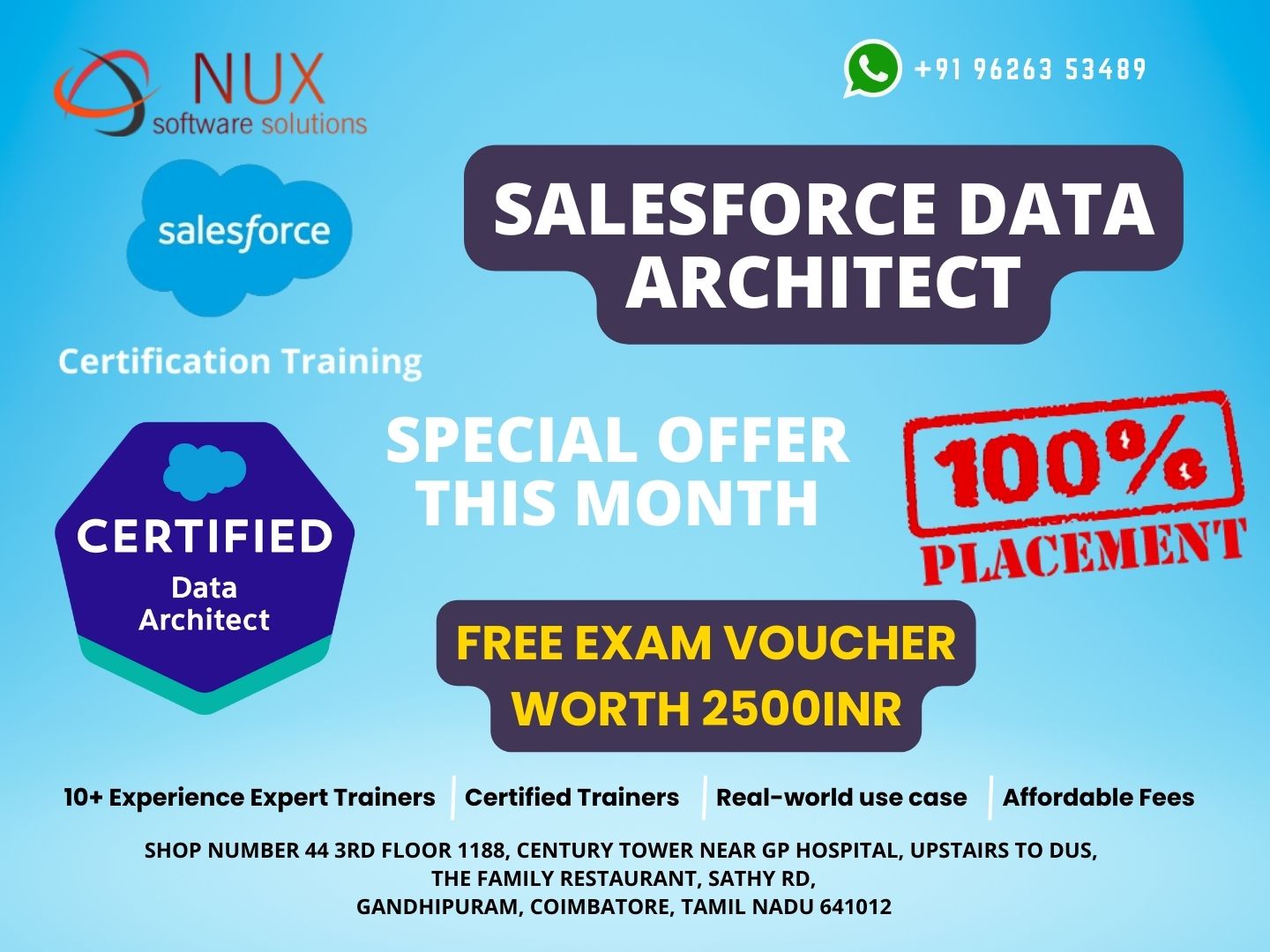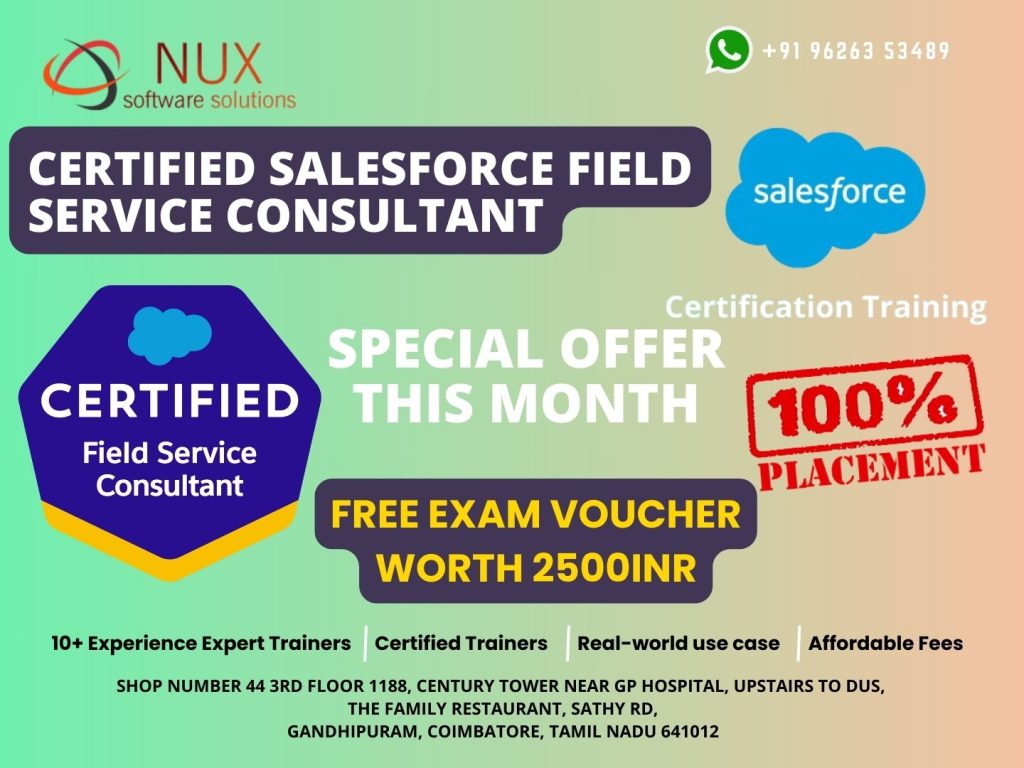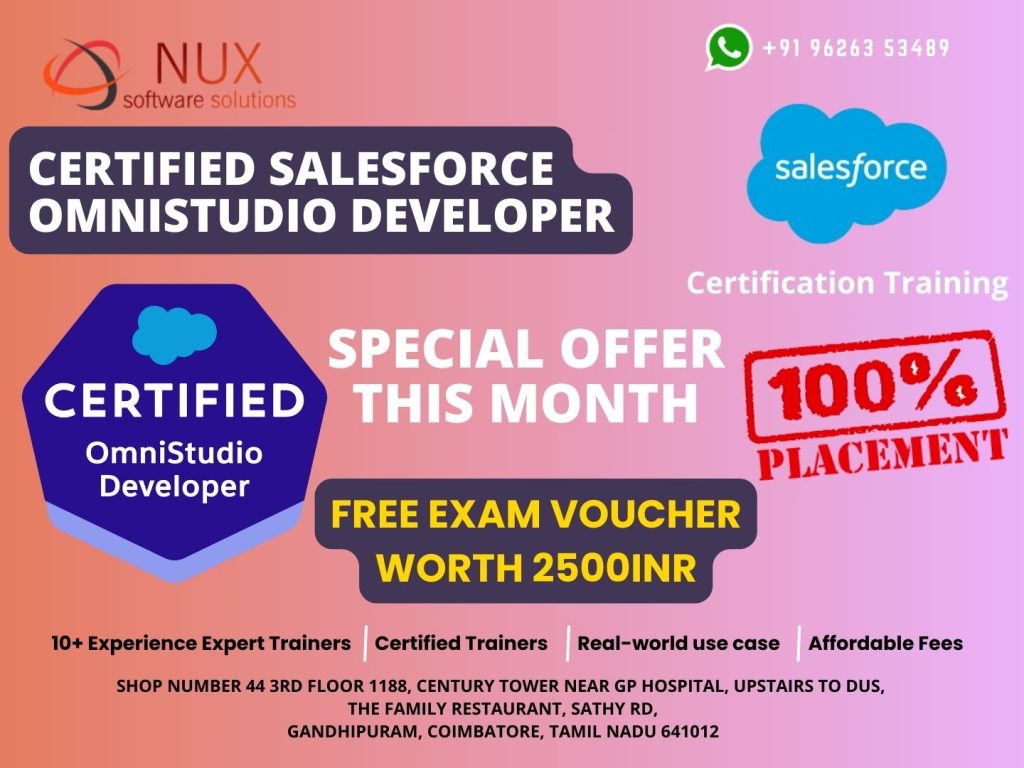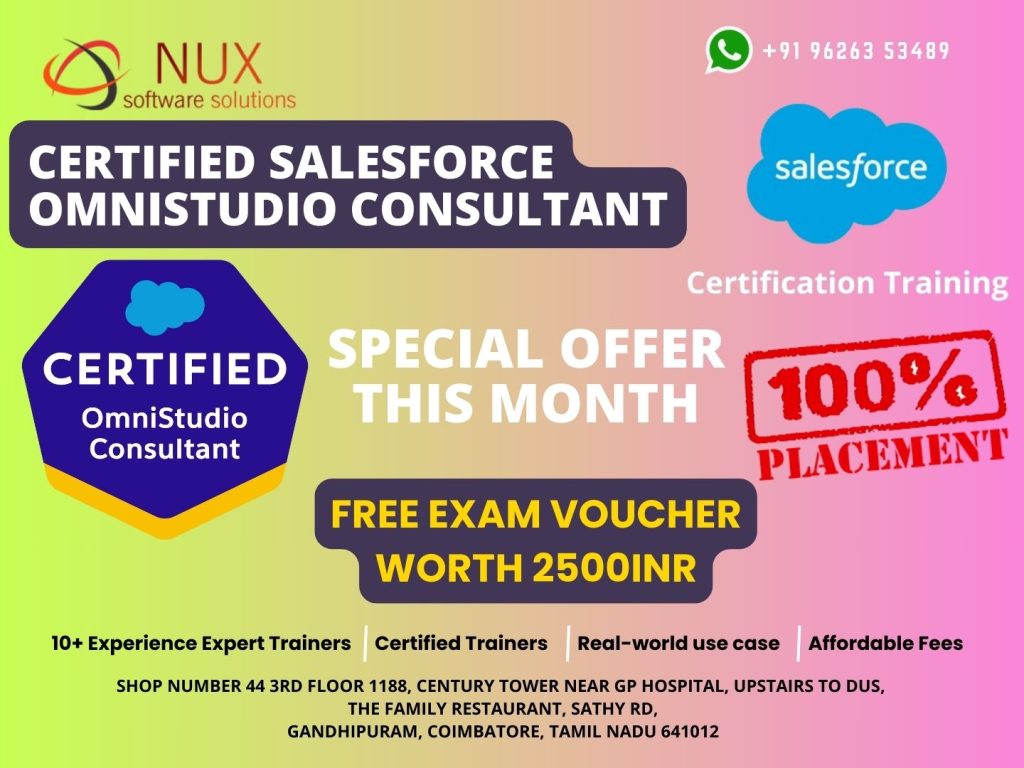Certified Salesforce Data Architect Training and certification in Coimbatore

Course Summary
The Salesforce Certified Data Architect credential validates the knowledge and expertise required to design and implement scalable, high-performance data architectures on the Salesforce platform. This training program is built for professionals responsible for data governance, data modeling, master data management, and regulatory compliance across complex enterprise environments.
Participants will explore Salesforce’s multi-org strategy, integration patterns, data lifecycle, and design principles that support secure and efficient data handling at scale.
Why Choose This Course
As businesses deal with increasing data complexity, certified Data Architects are critical to ensuring data quality, compliance, and consistency across Salesforce clouds and external systems. This course helps you:
Gain mastery in enterprise-grade data architecture using Salesforce best practices
Prepare confidently for the Salesforce Data Architect certification exam
Learn to handle complex integrations, data quality issues, and compliance challenges
Become a key resource for large-scale Salesforce implementations and governance
Advance into senior roles where data strategy meets technical execution
Who Should Enroll
This course is ideal for:
Salesforce Architects and Consultants involved in large org implementations
Data analysts or database professionals transitioning into Salesforce ecosystems
Enterprise and Solution Architects designing Salesforce data models
Professionals preparing for the Salesforce Certified Data Architect credential
Organizations aiming to enhance data integrity, security, and compliance across Salesforce platforms
Skills You Will Gain
Designing scalable data models for Sales Cloud, Service Cloud, and Industry Cloud
Managing data quality, governance, and stewardship programs within Salesforce
Planning and implementing LDV (Large Data Volume) strategies
Integrating Salesforce with external systems and third-party data stores
Handling data residency, encryption, and regulatory compliance (e.g., GDPR, HIPAA)
Career Benefits
After completing this course, you will:
Be prepared for the Salesforce Certified Data Architect exam
Qualify for leadership roles such as Enterprise Data Architect, Salesforce Solution Architect, or Data Governance Lead
Demonstrate your expertise in cross-cloud data architecture and integration
Gain recognition for your ability to solve complex data challenges in large orgs
Become an essential team member in digital transformation and modernization initiatives
Architect Salesforce Data Solutions That Scale with Your Business
This training equips you to design secure, compliant, and scalable data ecosystems across the Salesforce landscape—making you a trusted advisor for enterprise clients and top-tier partners.
Start your Salesforce Data Architect journey at Linux Training Center, Coimbatore.



